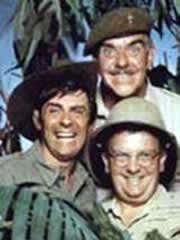
Twenty five years ago, the birth of a darker side of music was forming. Straight out of the loins of fast, furious punk, came the sombre approach to life and death in the form of Goth. It was initially the delights of North London in such suburbs as Camden Town that was first blamed. Pointed at by conservative bony fingers for the introduction to such macabre ways of thinking, it was actually Nottingham and the surrounding areas, it has been said, first took the giant steps into a brave new witchcraft -like world. Even though Nottingham didn’t achieve great Goth status in the eyes of the rest of the English speaking world, (no claim on Joy Division, I’m afraid) they did mange to put in their penny’s worth as far as other music was to go….
So, we know that every town can have a stab at a claim to fame on the ‘generating genre’ list. It’s not difficult for the Liverpudlians to shout Cilla Black or Gerry and the Pacemakers in front of a passing tourist. They don’t even have to mention the B word too much these days. Even Leeds can boast the more recent Sisters Of Mercy; probably one of the most innovative bands from the Goth movement, but, hold fast, there are more obscure places to go and find the birth of great names. What about Cobham in Surrey who gave us Peter Gabriel and who can forget Stanmore in Middlesex who gave us Billy Idol? So who have we been able to identify as more than just a blotch on the British music industry from this historic city?
Well, delving through the deepest depths of the back of my mind, I came up with two bands who have graced us with their enigmatic presence. The first of these bands are almost certainly going to be figures of the Sixties generation. Back in the midst of the psychedelic decade, long haired, introverted students were busily working away on their own stunning slants of already secure music themes. It wasn’t just The Beatles that we got all unnecessary about by any stretch of the imagination. The youth of the day were shifting into a pattern of generating their own angles of music that their parents had been brought up on. The British Blues scene took it’s turn at peaking around the late Sixties with such sounds from John Mayall, Eric Clapton and Peter Green. Born out of the inspiration of the ever changing social acceptance of ‘free thinking,’ a certain band flung themselves onto the general public from Nottingham and they eventually called themselves, Ten Years After. Appearing as though they had all failed the audition for ‘Easy Rider,’ and with Leo Lyons, their bass guitarist looking more like Frank Zappa, these three individuals came together an created some of the greatest British born Blues around.
Although they may not light up any seasonal fire crackers in your minds, they will have made their presences felt throughout the revolutionary British Blues scene. Solidifying true Southern U.S blues with a predominately white guitar feel, they embarked on a historic career that has never really ended. Even though British Blues artists had been smouldering away in the privacy of their own bedrooms since the late Fifties, it was, strangely and literally, ten years after that this sound from the now, heavenly regarded, artists of that time, really came to the fore. It was great musicians like Alvin Lee, of Ten Years After, that gave us the backbone of a lot of the rock music we still listen to today.
Thankfully, they are still going strong and sounding just as exciting and revolutionary as they did forty years before, they just look like our dads now; bearded, friendly and trusting like a well behaved Spinal Tap, they undoubtedly, can still rock. For future gigs and contact, please go to www.ten-years-after.com.
The next influential band to come out of the Robin Hood city was a band that need no formal introduction. Tindersticks plunged head first into our ears initially as the strangely titled, Asphalt Ribbons. Quite where this name originated, I don’t know, and even so, it was not under this name that they found any great success. Yet, it was the three musicians plus three more that gave us the name that stayed fast. Although, they never appeared to conger up any real critical acclaim, they did have a fairly memorable album, ’The Second Tindersticks Album,’ that landed the position of number 13 in April 1995. Describing them to a complete stranger is rather a difficult task as they did seem to create a genre all of their own. Not quite fitting into a known category, other than ‘chamber pop’, they may have been brushed casually with the title of Goth Gods, although this would have been better felt to be at the most extreme end of the scale where Goth may have met Country on a unique and totally accidental night…
One thing was for certain, they somehow found the same frequency as a few other darkly spirited romantics floating around at the time. As the colourful craziness of the Eighties came to an abrupt halt and the more monochromed moroseness of the Nineties began, Tindersticks found themselves an audience that was surprisingly and completely at their mercy. Their depressingly precise lyrics and heart aching melodic music was quite the tonic for the faint hearted. Even though they were fundamentally a band who produced meaningful prose and wistful string arrangements, they were not unlike the pensive side of Lou Reed’s Velvet Underground. The brooding vocals of Stuart Staples in Tindersticks was enough to melt the most coldest of souls. His emotion altering lyrics shifted darkly and absorbingly through the aching tunes and mournful chords, that the listener felt quite dragged in to his doom and gloom world. Perhaps making what we knew as mainstream Goth more along the lines of Stock, Aitken and Waterman..
Despite their bleak outlook, their beauty came from their traditionally perfected arrangements. Their music, although noose-needing, spelt out a theme that probably applies to us all at some stage in our lives. What Tindersticks gave us was an alleyway; destitute and deathly as it was, but a path when, on such down trodden moments, we might just find a guiding light. These glamorously laced themes dripping with personal failure were beautifully crafted with such musical skill that the songs seem practically timeless. It could well be argued that there never was, nor will there ever be, a band with such a gentle, inoffensive sound quite like Tindersticks. Find out more about this uniquely accomplished band at www.tindersticks.co.uk.
Since the two above mentioned bands slot into the filing cabinet of our minds of ‘bands from Nottingham,’ they couldn’t really be any further apart in the genre sense. Yet they are just as important to mention as any other, more famous name from anywhere esle. Both just as inspirational now to up and coming bands as others were to them in past decades. With this in mind, and with these two enchantingly professional groups, perhaps it is about time that we were graced with another band or artist from this city…
©michelle duffy 2006
Thursday, March 22, 2007
Beauty And The Blues
Posted by
Michelle Duffy
at
Thursday, March 22, 2007
![]()
Subscribe to:
Post Comments (Atom)




No comments:
Post a Comment